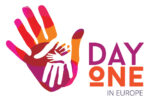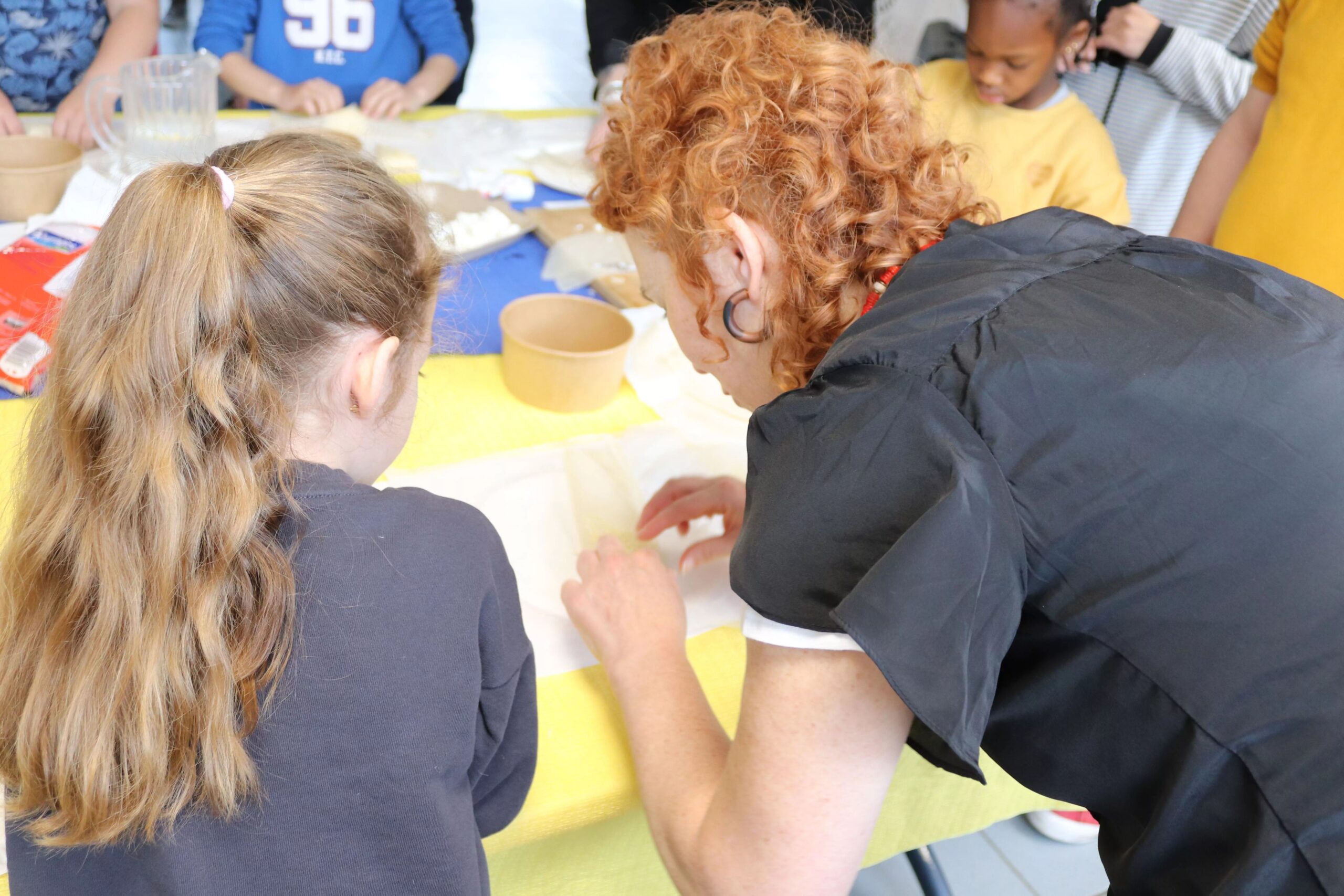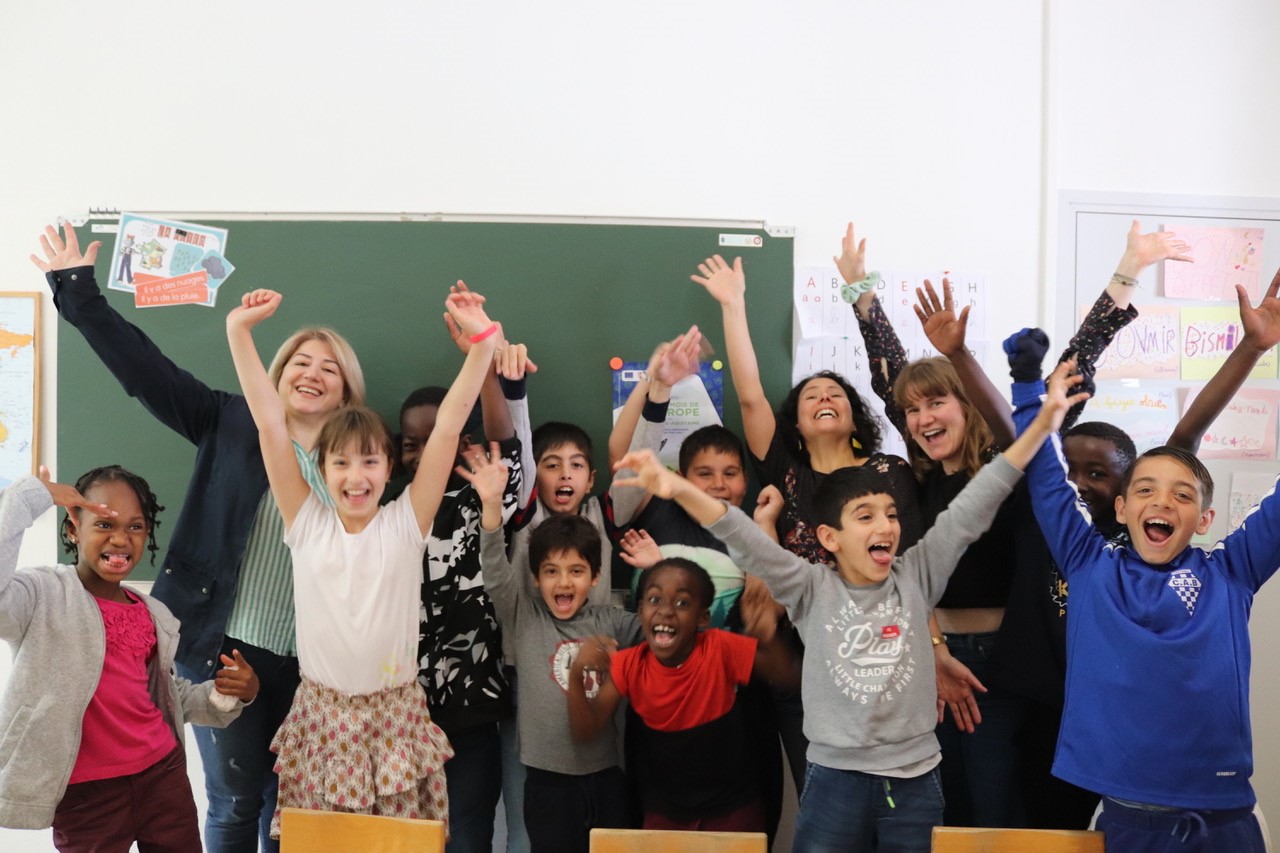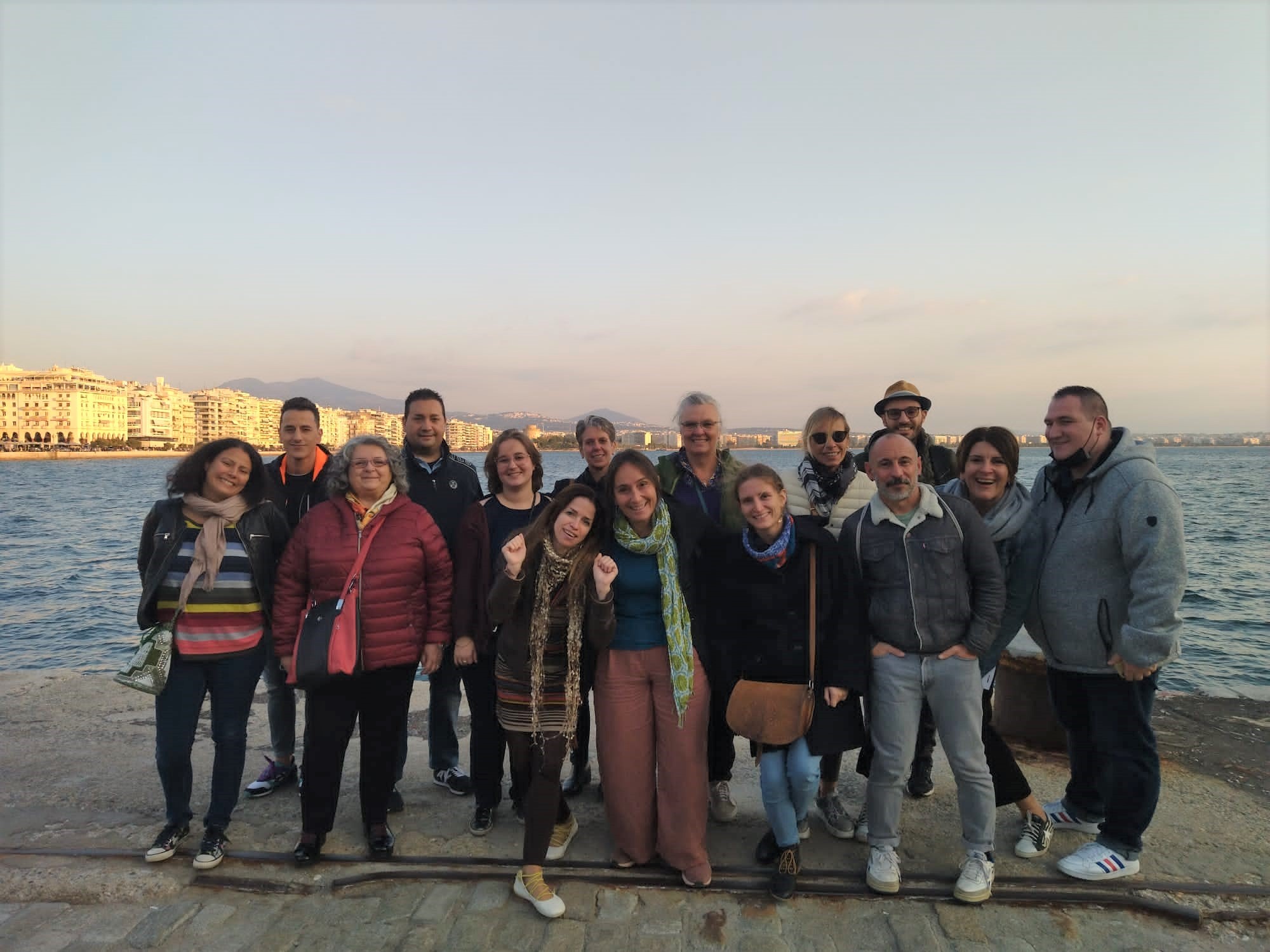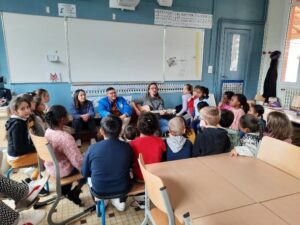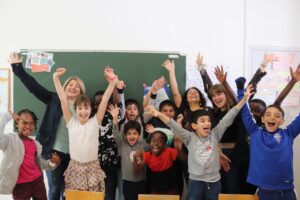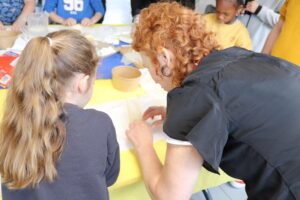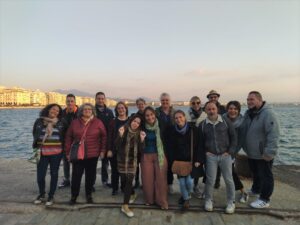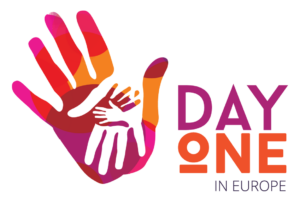European project “Day 1 in Europe” had an important chapter that took place in Bègles (near Bordeaux) France, from April the 6th to the 8th. Training, events, and an international meeting, a three-day training allowed all participants to reflect on their own, and for Europe, a better approach to accepting allophone children. Clearly, it is a productive time, and here are some highlights from these three days.
This evaluation was carried out in collaboration with Marine Pisani.
Creating links in the kitchen
In order to examine and implement the “Lunch Box” (a tool that uses cooking as a form of inclusion) and to prepare meals with allophone children, each participant put on an apron. Even though they were from different places and spoke different languages, all it took was one grin to break the ice. The food was quickly prepared with the help of the adults and kids, and it was unquestionably a fantastic supper!
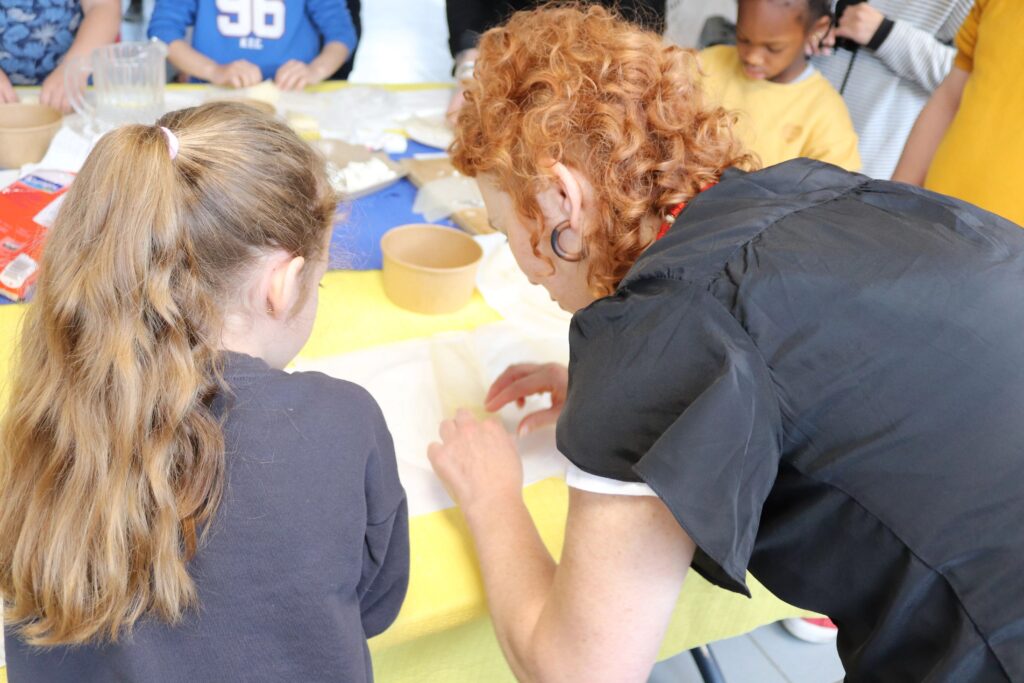
Afternoon of culture valorization
The afternoon of culture valorization was successfully concluded with the assistance of the project’s international partners and foreign parents of Ferdinand Buisson primary schools (l’école élémentaire Ferdinand Buisson). Different classrooms were transformed into different “countries,” and students from the school began their journey around the world with a passport. Using national flags, regional attire, dialects, and undoubtedly cuisines, this program taught every youngster that there are many diverse cultures. As allophone children said proudly: « this is my hometown »
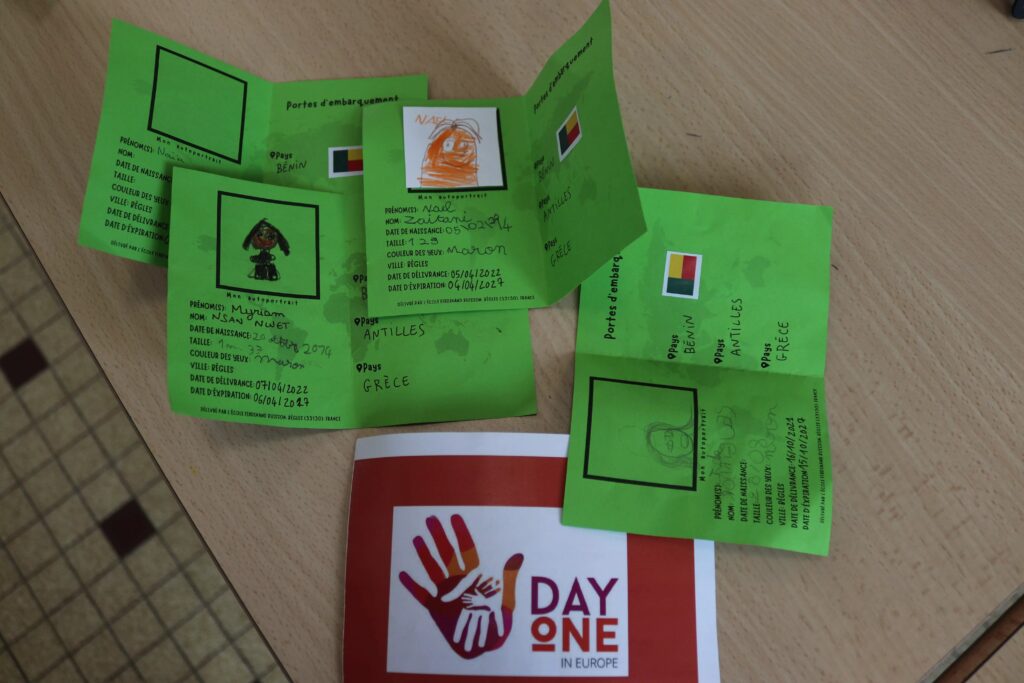
What was observed?
What occurred here will spread to other places.
Arriving in a foreign place and speaking a foreign language provided the opportunity to learn about the actual challenges that allophone children face. And only in this manner will the experts design a more practical method for inclusion. “During my three days in France, I felt lonely, disengaged, and it was difficult to do even one single thing, which made me realize how difficult it was for them,” a participant said.
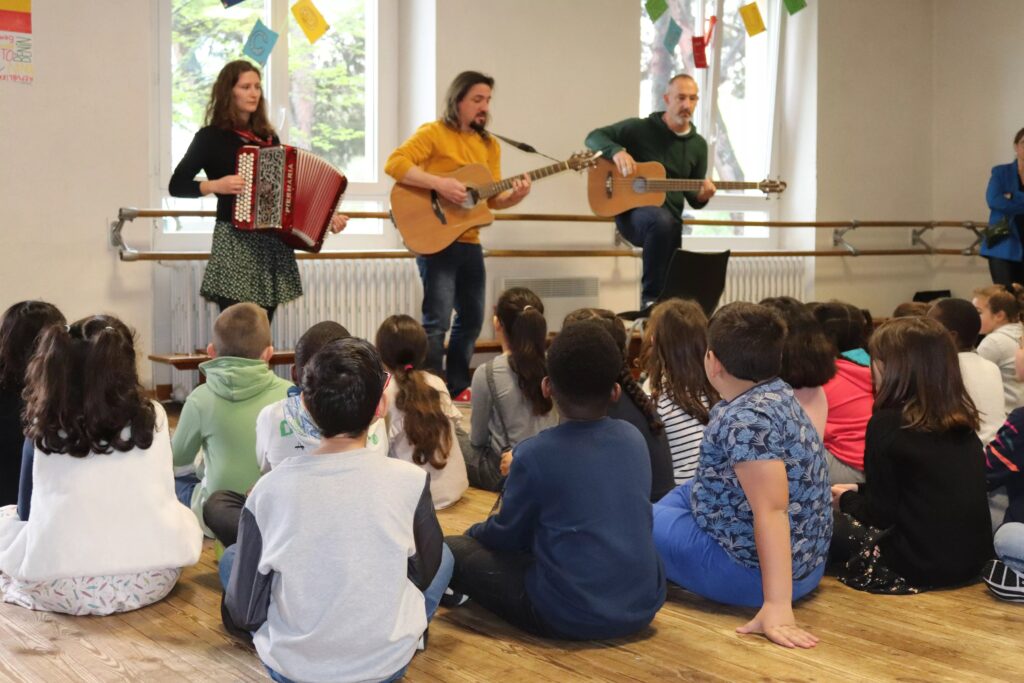
Little ones never lost their bravery.
“We are the ones who are afraid to talk to others, they are courageous,” the professional group concluded. The children were always the ones who took the initiative to talk to the stranger when they were cooking with an unfamiliar adult or conversing with representatives from other countries, despite the difficulty of the situation. They shown their bravery and adaptability, so now it’s up to the adults to demonstrate their efforts.
Despite its short duration, these 3 days gave every participant the chance to contemplate using the inclusion technique in their future careers. In addition, Day 1 in Europe will make its own contribution for allophone children by assisting them in locating their unique place in a new society through all of these experiments and activities.
